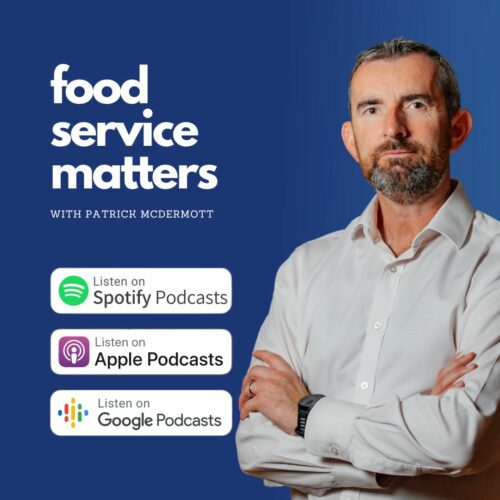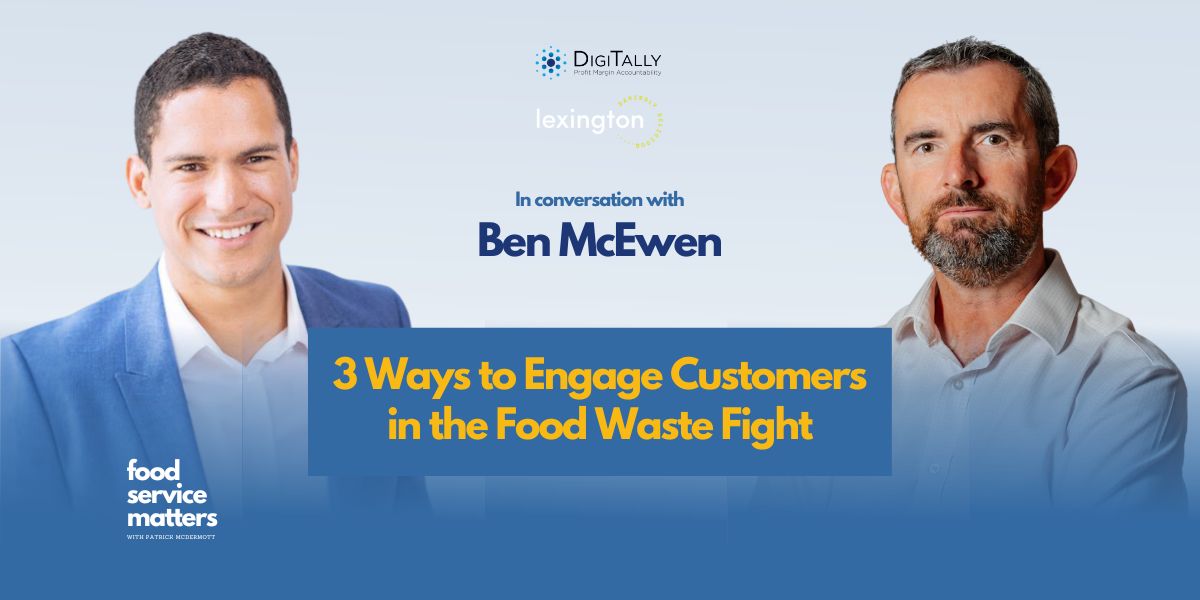Getting customers involved in reducing their own food waste is an essential step for businesses to drive change in this global issue.
In episode seven of the Food Service Matters podcast, host Patrick McDermott interviews Ben McEwen, Sales Director of Lexington, an innovative company providing catering and reception services for businesses and independent schools, which is now part of the Elior Group.
How can companies engage conscious consumers in tackling the problem of food waste? Here are three key strategies from Patrick and Ben’s insightful discussion.
1. Promote stricter portion control
Food service companies should pay close attention to offering reasonable portion sizes, particularly in settings where more portion control can be enforced.
Giving the example of Lexington’s school catering services, Ben explains, “We’ve probably got greater control around portion sizes, and we can be a bit more overt in telling people not to pile on more food than they can eat.” An approach such as this can help reduce the issue of plate waste.
2. Guide customers in eating sustainably
In other environments, such as office and event catering, guiding customers appropriately is vital.
Ben points out, “In the city, we have to try and provide messaging around reducing food waste and eating sustainably.” For instance, in a buffet-style setting, provide smaller plates and permit people to come back if they are still hungry. Affording options for diners to take leftovers home can also decrease the chance of food being wasted.
3. Communicate food waste initiatives
With an increase in conscious consumers, businesses need to make customers aware of their sustainability efforts.
Ben highlights, “It’s important that we communicate openly about what we’re doing.” Discussing food waste initiatives, he adds, “If people see a lot of food ending up in the bin, that’s not a good position to be in.” Companies need to demonstrate to customers what they’re doing to tackle this issue by showcasing food waste reduction programmes and achievements in company messaging. This raised awareness can encourage people to make better, more informed choices.
The bottom line is that the key to getting consumers involved is friendly education in portion control and sustainable eating, as well as leading by example. By sparking an eco-movement at all levels of the business, food service companies can better influence diners and make a truly positive impact on the food waste fight.
To listen to Patrick’s full interview with Ben McEwen, check out the Food Service Matters podcast on Spotify, Apple Podcasts or Google Podcasts.
Patrick is CEO of DigiTally, which is playing an increasingly important role as a simple, intuitive and interconnected food service software that helps save time, increase margins and combat food waste. Keen to learn more? Let’s talk! Book a 30-minute call with Patrick and get your demo set up today.




